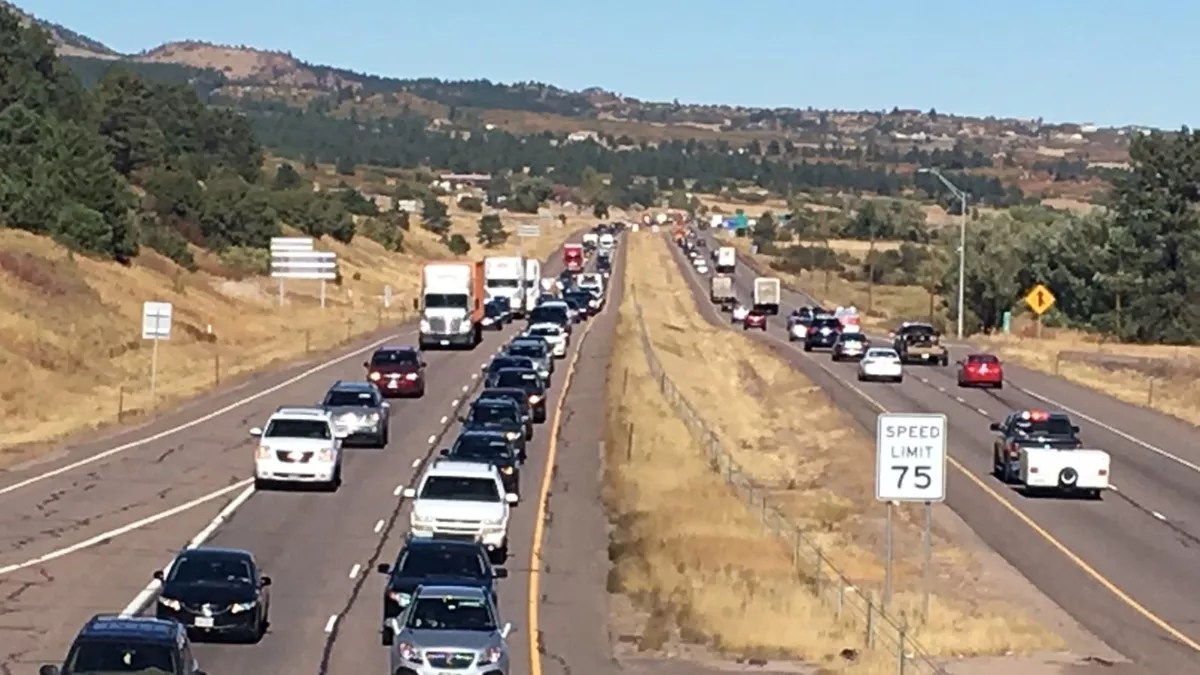
Colorado Department of Transportation

Audio By Carbonatix
The COVID-19 pandemic has presented a challenge to researchers in fields well beyond medicine.
Take a new study from Apartment List about the rise of so-called super commuters – people whose daily trip to and from work takes ninety minutes or more each way. The statistics at the heart of the report cover the period between 2010 and 2019, before lockdowns spurred a rise in remote work. So are the findings about Denver, which show a 45 percent increase in super commuters in just over a decade, still valid? Or has everything changed? And if so, how?
We put these questions to housing economist Chris Salviati, who co-authored the study. He thinks super commuting will continue to be a thing, in part because of what’s happening right now on roadways here and beyond.
“Remote work resulting from the pandemic certainly led to a significant reduction in commuting last year,” Salviati acknowledges. “But traffic data are already showing vehicle travel return to near pre-pandemic levels as many workers return to in-person settings.”
According to the study, there are approximately 4.6 million workers in the United States whose commutes last ninety minutes or more each way; they collectively make up 3.1 percent of workers nationwide. And while Denver is hardly the metro area with the most super commuters (Stockton, California, is number one, with areas around New York City well-represented), it’s among the national leaders. “In the greater Denver region, there are 37,000 super commuters comprising 2.1 percent of the regional workforce,” he says. “Among fifty regions that we analyzed, Denver ranked fifteenth for the number of super commuters and 25th for the share of super commuters.”
Moreover, Salviati adds, Denver’s 45 percent growth from 2010 to 2019 was “nearly two times faster than the 25 percent growth rate for the region’s overall workforce over the same period.”
The stats indicate that the largest number of Denver super commuters, 5.6 percent, drive in from Elbert County, followed by 4.5 percent from Park County and 4.3 percent from Gilpin County. Clear Creek County shows the lowest super-commuting rate, at 0.6 percent.
When 2020 stats are released, Salviati predicts that they’ll probably show a decrease in the number of local super commuters – “but that data is likely to be an aberration reflecting the widespread shelter-in-place guidelines of the early months of the pandemic. It will likely take multiple years before a clear picture emerges showing how remote work is impacting this long-term trend.”
Still, he sees some intriguing indicators. “As companies decide how to navigate remote work post-pandemic, many are adopting hybrid arrangements that require workers to be on-site part-time (e.g., two days per week),” he notes. “These arrangements may lead to stronger demand for housing in the more affordable outer suburbs and exurbs of regions such as Denver, as workers are more likely to accept a long commute if it is required less frequently. In short, there is good reason to believe that hybrid remote arrangements could lead to a growing number of ‘part-time super commuters.'”
As a result, he suggests, “a broader shift toward remote work will outlast the pandemic. But we estimate that just one in three super commuters works in an occupation that is fully remote compatible, and not all of them will be offered that flexibility by their employers. Remote work will certainly eliminate some commutes, but for some workers, it could actually lead to longer commutes that are undertaken less frequently. Overall, it is unlikely that remote work alone will significantly alleviate the problem of super commuting.”
Buckle up: It could be a very long and bumpy ride.